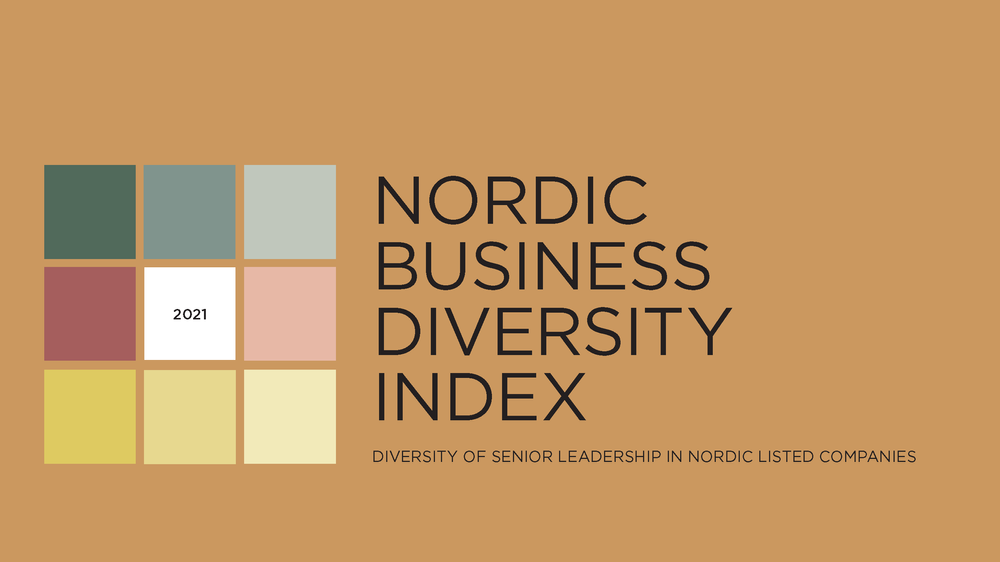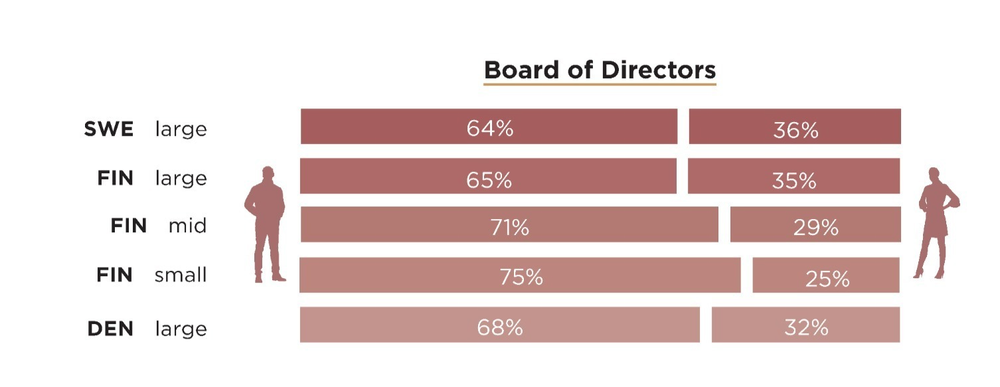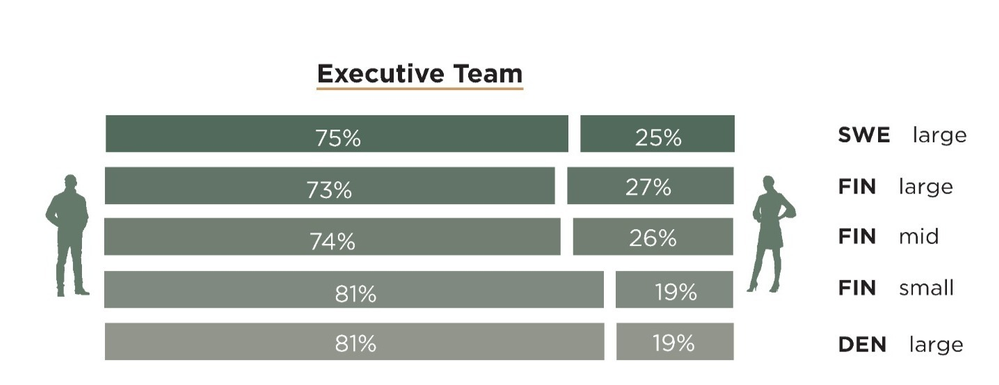Are the Nordics still the forerunners in gender equality? The most recent studies revealed alarming inequalities that threaten to set diversity in the Nordics back. In this article authors of The Nordic Business Diversity Index, Suvi Halttula and Susanna Saikkonen talk about the shifting mindsets in organizations, what has been done so far, as well as the worrying results of the report they launched earlier this month.

“Diversity is no longer seen merely as an act of corporate responsibility or as complying with the national Non-discrimination Act. International studies have provided evidence that diversity is a business asset, for example, through an increase in innovation and productivity.”
The rapid growth of D&I trends
During 2020 we saw an alarming amount of political movement towards populist and nationalist world views. There are European countries limiting women’s rights and throwing gasoline into the flames of xenophobia. At the same time, we have seen the growing movement of Black Lives Matter and #metoo, gathering people around the globe to defend equality and human rights. On top of the political unrest, the global pandemic has not treated everyone equally: women and underprivileged groups suffer the most.
In the past couple of years companies have taken a stronger role both in environmental and social issues to ensure sustainable development, but also to ensure a stable operating environment. For example, some businesses have set ambitious gender equality goals, some are campaigning visibly against racism and some are making a stand, by employing disabled or marginalised people.
“In addition to attracting talent, improving decision making, and increasing customer satisfaction, inclusion and diversity resonates also more and more with investors.
The number of “awaken” companies, who realise the benefits of an inclusive and diverse working environment, is growing. Diversity is no longer seen merely as an act of corporate responsibility or as complying with the national Non-discrimination Act. International ,studies have provided evidence that diversity is a business asset, for example, through an increase in innovation and productivity.
In addition to attracting talent, improving decision making, and increasing customer satisfaction, inclusion, and diversity resonates also more and more with investors. Surely, these are qualities that should sound interesting to any business owner and leader. Even though more and more companies are now aware of the shortage of expertise and the benefits of diversity, actions are still lagging behind.
The increasing inequalities in the Nordics
Gender inequality in corporate management is particularly clear in the recent EWOB study, according to which only 42 of the CEOs of Europe’s 668 largest companies are women (*2). The global pandemic has increased especially unemployment of women, as a lot of the affected sectors are female dominant. Also, the latest pay gap study in Finland shows an alarming trend: the pay gap between men and women is growing. In 2020 a woman’s pay is ca. 83.8% of a man’s pay, 0.4% less than in 2019.
The results of ,a recent Swedish study ,concerning the tech industry point out that every third woman who responded to the survey, report that they have been discriminated against, and not just because of gender. 33% of the respondents claim to have experienced discrimination related to their age, and as many as 59% claims to have experienced discrimination related to their nationality, language, or the colour of their skin.
We have already seen real-life consequences of too homogenous tech innovation teams: facial recognition services misidentifying people of colour, car safety equipment that is not planned for female bodies and virtual assistants flirting in response to sexual harassment.
The results of the newly launched Nordic Business Diversity Index
Last week we launched NORDIC BUSINESS DIVERSITY INDEX which is a study about diversity in the nordics on senior leadership in nordic listed companies. The results of this first Nordic Business Diversity Index portray the same picture as the one from the FINDIX2020 study. Leadership positions continue to be predominantly held by men, born in the 1960s with a degree in Business Administration and Economics, and being citizens of the company’s HQ country. There are companies who have made progress compared to last year’s FINDIX2020 results and there is a slight increase in average points of Large Cap and Small Cap categories, but the big picture remains pretty much the same.

“When looking at the gender balance for the entire data, it becomes quite clear that men are still the majority in the highest executive positions.”

This observation is unfortunately not surprising, but it is still quite alarming. Nordic countries are often cited to be forerunners in gender equality, but in 2021 we are in a situation where only 8% of companies have a female CEO. We also seem to be short-sighted and not able to grasp the importance of attracting foreign talent, even the ones who already live in the Nordics. A recent study from Finland also paints a worrisome picture of the age discrimination women face in recruitment: women are either too young or have too many small children, and then at 50 they are already too old (*).
Change starts with the right questions
To tackle these issues, we within the wider society as well as in workplaces need to start asking ourselves how? How to make leadership positions more attractive to women? How will people of colour or people with a foreign name face less intersectional discrimination in recruitment? How can Millennials be seen as an innovative asset in leadership? Only after honest self-reflection, we can start to take down the existing barriers, which make it impossible for underrepresented people to advance in organisations.
Representation is crucial when we aim for diversity. When leadership in our societies and companies reflect diverse backgrounds, we send the message that opportunity and success are not limited to a closed, homogenous group. Additionally, representation empowers those who have traditionally been left voiceless, and it encourages all of us to encounter our unconscious biases and learn about people who are different from us.
It’s good to see that inclusion and diversity is climbing up in the business agenda. In times like these, it’s more important than ever.
*) Akavan Erityisalojen työelämätutkimus 2020: rekrytointisyrjintää koskevia tuloksia
by Suvi Halttula and Susanna Saikkonen
SUVI HALTTULA Suvi Halttula is the founder of 3bility Consulting and a corporate social responsibility professional with strong background and passion for social responsibility, business and human rights, diversity and inclusion, Sustainable Development Goals and shared value creation. She is an experienced trainer and strategist who loves to capacitate clients in identifying meaningful and practical approaches through which social responsibility and the respect for human rights can be embedded into business strategies and day-to-day operations. She has a Master’s degree in Political Science as well as in Corporate Social Responsibility and Sustainability.
Susanna is the CEO of Joosuanpuu Oy and a corporate responsibility consultant. She looks at corporate responsibility from the perspective of both business and civil society, and she is particularly experienced in matters related to strategic sustainability and social responsibility. During her career, Susanna has worked on brand development of international technology brands and has over 10 years of experience in corporate responsibility and social development projects. Susanna is also a Master of Science in Business Administration, in addition to which she has studied intercultural management, human rights in business and diversity and inclusion.

